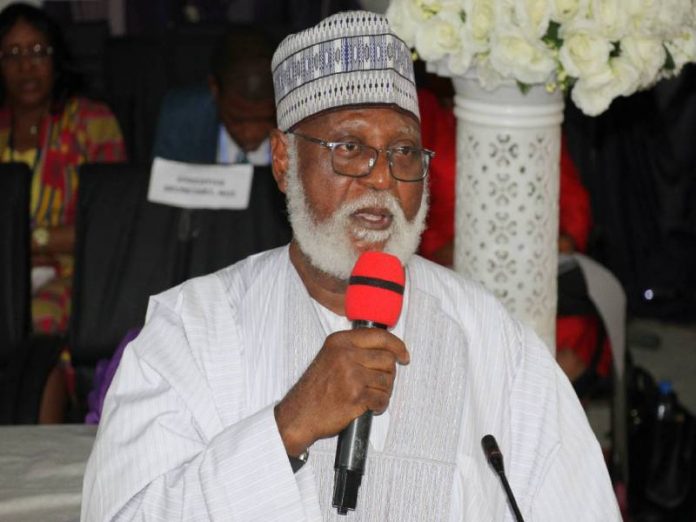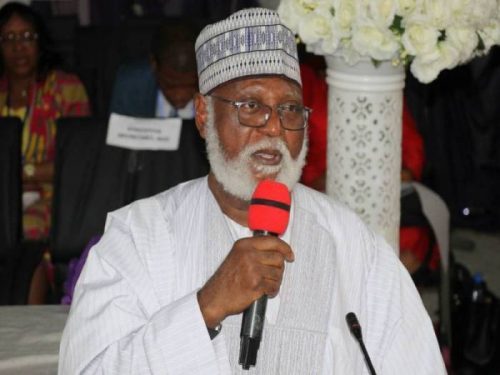
A former military head of state, Gen. Abdulsalami Abubakar (rtd), has revealed the process that led to former President Goodluck Jonathan to concede defeat to President Muhammadu Buhari after the result of the 2015 Presidential election.
Abdulsalami, who made the disclosure at the 2018 Annual General Conference of the Nigerian Bar Association (NBA), noted that the genesis of Africa’s political problems was “the action of its sit-tight leaders, who amend the constitution in order to perpetuate themselves.
“These leaders have the tendency to manipulate very vital democratic organs, particularly the legislature and, some times, the judiciary, to suppress any dissenting voice.
“Despite all these, Africa is now harvesting an influx of leaders and politicians. The young people who are emerging are more educated and internationally exposed than the current old leaders we have all over Africa. And these young men and women are trying to make their marks. However, as you know, they are hampered by the high cost of electioneering in developing countries and, indeed, the world,” he said. Abubakar, who delivered a keynote address on “Political transitions in Africa: Lessons to learn” gave credit to former President Jonathan for not only conceding defeat, but for congratulating President Buhari who was a candidate of the opposition party.
He said: “All analyses of political trend in the run up to Nigeria’s 2015 general elections pointed to above scenario playing out. Very early on, I teamed up with some well-meaning non-partisan stakeholders and elder statesmen to engage the key contestants and party leaders with a view to forestalling such a scenario.
“Under the auspices of a peace initiative, we brokered an agreement with leading contestants, in form of a Memorandum of Understanding, for them to accept the outcome of the elections, preach cordiality in relations and conduct peaceful campaigns.
“It is gratifying to note that, courtesy of our humble effort and the goodwill extended to it by the contestants and the Nigerian public, the 2015 national elections were conducted peacefully.
“To his eternal credit, the then incumbent President Goodluck Jonathan, who lost the polls had the magnanimity to concede defeat and congratulate the candidate of the opposition party. In the end, peace, amity and political stability prevailed in the land.”
The retired army General further disclosed the process that led to the transfer of power to a democratically elected leader in 1999.
He said when he was appointed to lead the country in 1998, there was political apathy and that the political class was already fatigued, with some voices calling for a return of the country to parliamentary system.
Also, speaking at the conference, a former chairman of the Independent National Electoral Commission (INEC), Professor Attahiru Jega, said while strong leaders and institutions are important for political transition, emphasis should not be placed on the strength of the leader at the detriment of the leader’s competence and disposition.
“To my mind, we need strong institutions and strong leadership; but, it is not just the strength of the leader that we require. What we require most is the competence and the capacity of the leader to take decisions and to be assertive in ensuring that those decisions are actually implemented.
“So, we have to be very careful in thinking that strong leaders can really help. Just as a weak leader can wreak an institution, a strong leader who has just the power and courage, but lacks capacity, ability and competence to lead, could also wreak strong institutions. So, it is very important that we recognise this important aspect of the leadership that we require,” he said.



Comment here